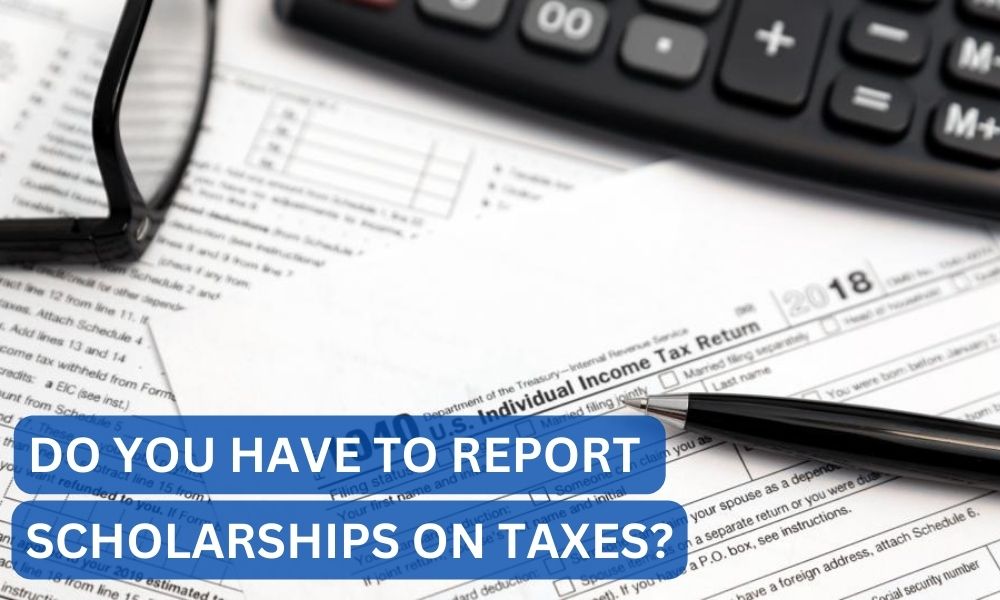When it comes to scholarships, many students and their families are unsure about the tax implications. Scholarships can provide financial relief for students pursuing higher education, but it’s important to understand whether or not they need to be reported on taxes. In this article, we will explore the rules and regulations surrounding scholarship taxation, providing valuable insights and guidance for students and their families.
Contents
Understanding scholarship taxation
Before delving into the reporting requirements, it’s crucial to understand the basics of scholarship taxation. Scholarships are generally considered tax-free if they meet certain criteria. According to the Internal Revenue Service (IRS), a scholarship is tax-free if:
- It is used to pay for qualified education expenses, such as tuition, fees, books, and supplies.
- The recipient is a degree candidate at an eligible educational institution.
- The scholarship is not payment for services, such as teaching or research.
If a scholarship meets these criteria, it is generally not considered taxable income. However, there are exceptions and special circumstances that may require reporting.
Exceptions to tax-free scholarships
While most scholarships are tax-free, there are a few exceptions that students and their families should be aware of. These exceptions include:
Read:Can you get a scholarship without sports?- Non-qualified expenses: If a scholarship is used to pay for non-qualified expenses, such as room and board, travel, or personal expenses, those portions may be subject to taxation.
- Work-related scholarships: Scholarships received in exchange for work, such as teaching or research, are generally considered taxable income.
- Living expenses: If a scholarship covers living expenses, it may be subject to taxation.
It’s important to carefully review the terms and conditions of a scholarship to determine if any portion of it is taxable. If there is uncertainty, consulting a tax professional is recommended.
Reporting requirements for taxable scholarships
If a scholarship is considered taxable, it must be reported on the recipient’s tax return. The amount of taxable scholarship income should be included on the “Other Income” line of Form 1040 or Form 1040NR. It’s important to note that even if a scholarship is tax-free, it may still need to be reported on certain financial aid applications, such as the Free Application for Federal Student Aid (FAFSA).
Additionally, if a student receives a Form W-2 or Form 1099 for their scholarship, it is a clear indication that the scholarship is considered taxable income. These forms should be carefully reviewed and included in the tax return filing.
Read:Can you get a scholarship for gymnastics?Impact on financial aid
Reporting scholarships on taxes can have implications for financial aid eligibility. The FAFSA requires students to report certain types of income, including taxable scholarships. However, tax-free scholarships should not be reported as income on the FAFSA. It’s important to accurately report all taxable scholarships to ensure compliance with financial aid regulations.
It’s worth noting that while scholarships may impact financial aid eligibility, they are generally considered a favorable form of financial assistance. Scholarships do not need to be repaid, unlike loans, and can significantly reduce the burden of student debt.
Case study: Taxable vs. tax-free scholarships
Let’s consider a case study to better understand the difference between taxable and tax-free scholarships:
Emily is a college student who receives a scholarship of $10,000 per year. The scholarship is used to pay for tuition and fees, which are qualified education expenses. In this case, the scholarship is tax-free and does not need to be reported on Emily’s tax return.
However, if Emily also receives a separate scholarship of $5,000 per year to cover her living expenses, this portion of the scholarship may be subject to taxation. Emily should consult the terms and conditions of the scholarship to determine if it is taxable and report the taxable portion on her tax return.
Read:How Do you spell scholarship?Conclusion
Understanding the tax implications of scholarships is essential for students and their families. While most scholarships are tax-free, there are exceptions that may require reporting. It’s important to carefully review the terms and conditions of a scholarship to determine if any portion is taxable. Taxable scholarships should be reported on tax returns, while tax-free scholarships may still need to be reported on financial aid applications. By staying informed and seeking professional advice when necessary, students can navigate the complexities of scholarship taxation and make informed decisions about their financial future.









